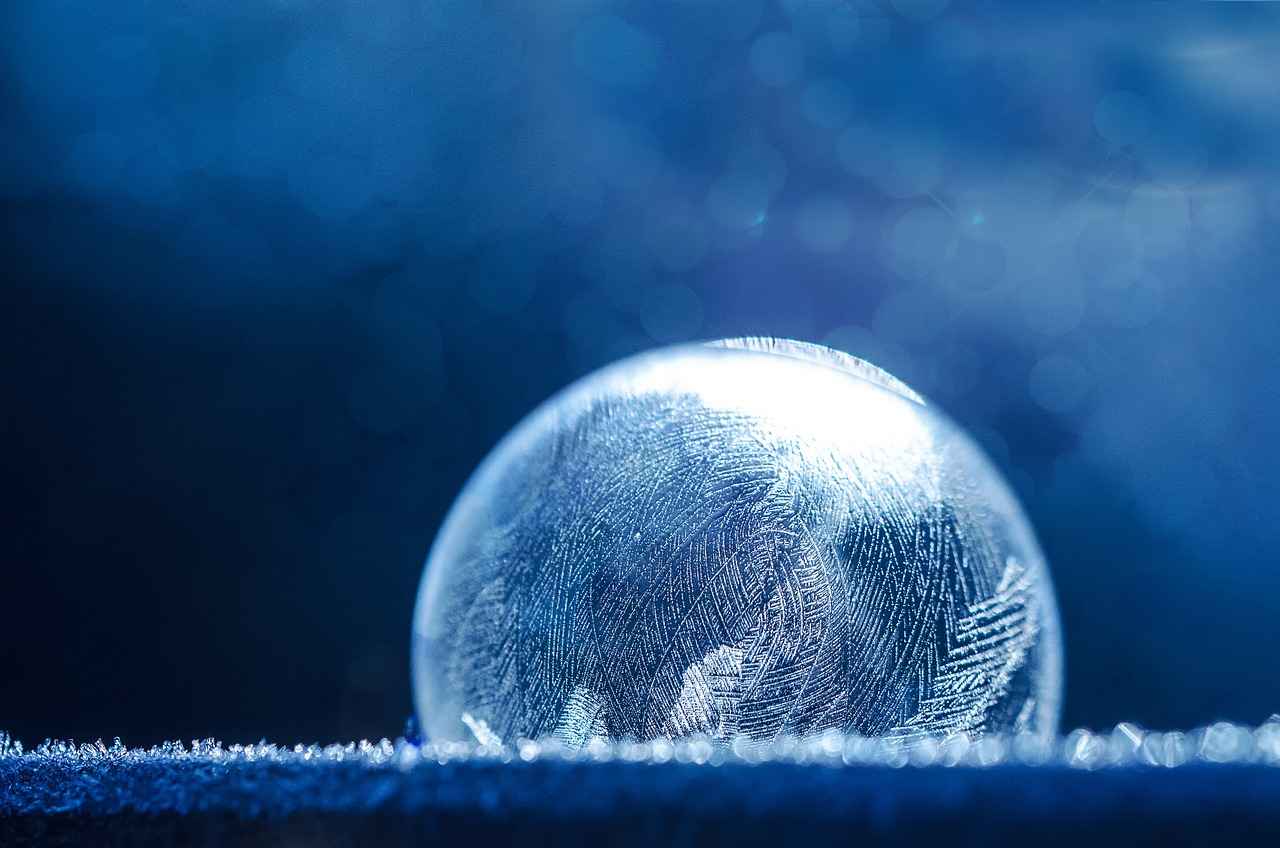This article explores the complex duality of Todoroki’s powers in My Hero Academia, examining how his abilities symbolize his emotional struggles and the impact of his upbringing.
The Origin of Todoroki’s Powers
Todoroki’s unique abilities stem from his lineage, combining the powers of fire and ice. His Quirk, known as Half-Cold Half-Hot, reflects the duality of his heritage, being the son of the flame-wielding Endeavor and the ice-manipulating Rei Todoroki. This section delves into the background of his Quirk and its significance within the series.
The Psychological Impact of Duality
Todoroki’s fire and ice powers represent his internal conflict. These abilities mirror his emotional trauma and the struggles he faces in reconciling both sides of himself. The constant battle between his father’s expectations and his desire for self-acceptance creates a profound psychological impact.
- Family Dynamics and Pressure
- The Role of Endeavor
- Mother’s Influence and Support
The expectations placed on Todoroki by his family play a crucial role in shaping his identity. His father’s relentless pursuit of strength creates immense pressure, influencing Todoroki’s perception of success and failure.
Endeavor’s abusive nature adds layers to Todoroki’s trauma. His father’s harsh training methods affect Todoroki’s understanding of strength and vulnerability, complicating his relationship with his own powers.
Todoroki’s mother, Rei, provides a contrasting influence. Her nurturing nature helps him navigate his complex emotions, offering a glimpse of warmth amidst the coldness of his father’s expectations.
Struggles with Identity
Todoroki’s journey involves grappling with his identity. Key moments in the series illustrate his confrontation with his powers, leading to a deeper understanding of self-acceptance.
Growth Through Adversity
Despite his challenges, Todoroki’s character development is profound. He learns to embrace both aspects of his Quirk as a means of personal growth and healing.
- Overcoming Internal Conflict
- Building Relationships
Todoroki’s journey toward self-acceptance is a central theme. Pivotal moments illustrate his struggle and eventual resolution with his powers.
Friendships play a significant role in Todoroki’s growth. His relationships with classmates, particularly Midoriya and Bakugo, aid in his journey of self-discovery and acceptance.
In conclusion, Todoroki’s dual powers of fire and ice serve as a powerful metaphor for his internal struggles. Through understanding and embracing both sides of his abilities, he embarks on a path of healing and self-acceptance, making him one of the most compelling characters in My Hero Academia.
My Hero Academia,
Todoroki’s Fire and Ice: How His Powers Reflect His Trauma
This article explores the complex duality of Todoroki’s powers in My Hero Academia, examining how his abilities symbolize his emotional struggles and the impact of his upbringing.
The Origin of Todoroki’s Powers
Todoroki’s unique abilities stem from his lineage, combining the powers of fire and ice. His Quirk, known as Half-Cold Half-Hot, is a manifestation of his father’s fire abilities and his mother’s ice capabilities. This duality is significant within the series as it represents the clash between two opposing forces.
The Psychological Impact of Duality
Todoroki’s fire and ice powers represent his internal conflict. These abilities reflect his emotional trauma and the struggles he faces in reconciling both sides of himself.
- Family Dynamics and Pressure: The expectations placed on Todoroki by his family play a crucial role in shaping his identity. The influence of his father, Endeavor, significantly impacts his psyche.
- The Role of Endeavor: Endeavor’s abusive nature adds layers to Todoroki’s trauma, affecting his perception of strength and vulnerability.
- Mother’s Influence and Support: Todoroki’s mother, Rei, provides a contrasting influence, helping him navigate his complex emotions.
Struggles with Identity
Todoroki’s journey involves grappling with his identity. Key moments in the series illustrate his confrontation with his powers and what they mean for his self-acceptance.
Growth Through Adversity
Despite his challenges, Todoroki’s character development is profound. He learns to embrace both aspects of his Quirk as a means of personal growth and healing.
- Overcoming Internal Conflict: His journey toward self-acceptance is central to his character arc.
- Building Relationships: Friendships with classmates, particularly Midoriya and Bakugo, play a significant role in his growth and self-discovery.
In conclusion, Todoroki’s powers are a powerful metaphor for his internal struggles and the journey towards self-acceptance. His character development illustrates the importance of embracing all aspects of oneself, no matter how conflicting they may seem.
examining how his abilities symbolize his emotional struggles and the impact of his upbringing.
Todoroki’s Fire and Ice: How His Powers Reflect His Trauma
This article explores the complex duality of Todoroki’s powers in My Hero Academia, examining how his abilities symbolize his emotional struggles and the impact of his upbringing.
The Origin of Todoroki’s Powers
Todoroki’s unique abilities stem from his lineage, combining the powers of fire and ice. This section delves into the background of his Quirk and its significance within the series.
The Psychological Impact of Duality
Todoroki’s fire and ice powers represent his internal conflict. These abilities reflect his emotional trauma and the struggles he faces in reconciling both sides of himself.
- Family Dynamics and Pressure
- The Role of Endeavor
- Mother’s Influence and Support
- Struggles with Identity
The expectations placed on Todoroki by his family play a crucial role in shaping his identity. The influence of his father, Endeavor, significantly impacts his psyche.
Endeavor’s abusive nature adds layers to Todoroki’s trauma. His father’s actions affect Todoroki’s perception of strength and vulnerability.
Todoroki’s mother, Rei, provides a contrasting influence. Her support helps him navigate his complex emotions.
Todoroki’s journey involves grappling with his identity. Key moments in the series illustrate his confrontation with his powers and their meaning for self-acceptance.
Growth Through Adversity
Despite his challenges, Todoroki’s character development is profound. He learns to embrace both aspects of his Quirk as a means of personal growth and healing.
- Overcoming Internal Conflict
- Building Relationships
Todoroki’s journey toward self-acceptance is a central theme. Pivotal moments illustrate his struggle and eventual resolution with his powers.
Friendships play a significant role in Todoroki’s growth. Relationships with classmates, particularly Midoriya and Bakugo, aid in his journey of self-discovery and acceptance.
Conclusion
In conclusion, Todoroki’s powers serve as a profound metaphor for his emotional struggles and the impact of his upbringing. Through his journey, he learns to integrate both sides of his abilities, ultimately leading to personal growth and healing.
The Origin of Todoroki’s Powers
Todoroki’s unique abilities are a fascinating aspect of his character in My Hero Academia. His powers, which merge the elements of fire and ice, are not just visually striking but also deeply symbolic of his internal struggles and familial background. This section aims to explore the origins of Todoroki’s Quirk, shedding light on how his lineage plays a crucial role in shaping his abilities.
Born to the powerful hero Endeavor and his wife Rei, Todoroki is the product of a carefully orchestrated plan to create a hero with unparalleled abilities. Endeavor’s obsession with surpassing All Might led him to push Rei to her limits, resulting in the birth of Todoroki with a unique dual Quirk. This combination allows him to wield both the destructive force of fire and the chilling power of ice, a gift that is both a blessing and a curse.
However, the significance of his powers extends beyond mere elemental control. The fire represents the oppressive expectations of his father, while the ice symbolizes the emotional trauma inflicted by his family dynamics. This duality creates a constant internal conflict for Todoroki, as he grapples with the legacy of his lineage and the desire to forge his own identity.
As the series progresses, Todoroki’s journey reflects the struggle of reconciling these two powerful elements within him. His Quirk serves as a metaphor for his emotional state, illustrating how the pressures of his upbringing influence his self-perception and relationships with others. Understanding the origins of Todoroki’s powers not only enriches the narrative of My Hero Academia but also highlights the profound themes of identity and acceptance.
The Psychological Impact of Duality
Todoroki’s Fire and Ice: How His Powers Reflect His Trauma
This article explores the complex duality of Todoroki’s powers in My Hero Academia, examining how his abilities symbolize his emotional struggles and the impact of his upbringing.
The Origin of Todoroki’s Powers
Todoroki’s unique abilities stem from his lineage, combining the powers of fire and ice. This section delves into the background of his Quirk and its significance within the series.
Todoroki’s fire and ice powers are not merely a set of abilities; they are a profound representation of his internal conflict. Each element he wields signifies different aspects of his personality and emotional state. The fire symbolizes his anger, pain, and the oppressive expectations placed upon him by his father, Endeavor. In contrast, the ice reflects his desire for peace, control, and the nurturing side of his mother, Rei.
This duality manifests in Todoroki’s interactions with others and his own self-perception. He often struggles to accept both sides of himself, leading to moments of intense emotional turmoil. The inability to reconcile these conflicting elements creates a barrier that hinders his growth and relationships.
As Todoroki navigates his journey, the emotional trauma tied to his powers becomes evident. His ice abilities, often seen as a refuge, are equally a source of fear, as they remind him of his mother’s struggles and his own vulnerability. Conversely, the fire represents the toxic legacy of his father’s ambition, which he feels pressured to uphold.
Thus, Todoroki’s powers serve as a constant reminder of his past, shaping his identity and influencing his decisions. This internal battle is a central theme in his character development, illustrating the profound impact of trauma on one’s abilities and self-acceptance.
Conclusion
In summary, Todoroki’s fire and ice powers are a vivid reflection of his emotional struggles and trauma. Understanding this duality is crucial to grasping the complexities of his character and the journey toward self-acceptance and healing.

Family Dynamics and Pressure
The expectations placed on Todoroki by his family are pivotal in shaping his identity and emotional landscape. Growing up in the shadow of his father, Endeavor, Todoroki experiences immense pressure to excel and embody the ideals of strength and power. This familial expectation is not merely a source of motivation; it often manifests as a heavy burden that weighs on his psyche.
Endeavor, as the number one hero, holds a significant influence over Todoroki’s life. His relentless pursuit of greatness and his abusive tendencies create a toxic environment for Todoroki, leading to a complex relationship characterized by fear and resentment. The pressure to surpass his father’s legacy becomes a driving force in Todoroki’s life, pushing him to grapple with feelings of inadequacy and anger. This dynamic highlights the impact of parental expectations on a child’s mental health and self-image.
Moreover, the emotional scars left by Endeavor’s harsh demeanor complicate Todoroki’s perception of strength. He struggles to reconcile the notion that true power should be accompanied by compassion, a lesson that he learns through his interactions with others. The duality of his fire and ice powers serves as a metaphor for this internal conflict, representing both the rage inherited from his father and the desire for acceptance and love.
On the other hand, Todoroki’s mother, Rei, offers a contrasting influence. Her nurturing nature provides a semblance of emotional support, allowing Todoroki to explore his identity beyond the expectations imposed by his father. This duality in parental influence emphasizes the importance of a balanced family dynamic in a child’s development.
In summary, the family dynamics surrounding Todoroki play a crucial role in shaping his identity. The pressure from Endeavor forces him to confront his own values and beliefs, while the support from Rei helps him to navigate the complexities of his emotions. Understanding these dynamics is essential in comprehending Todoroki’s journey towards self-acceptance and personal growth.

The Role of Endeavor
In the world of My Hero Academia, the character of Endeavor serves as a pivotal figure in shaping the life of his son, Todoroki. Endeavor’s abusive nature adds significant layers to Todoroki’s trauma, influencing his perception of strength and vulnerability in profound ways. This relationship is critical in understanding Todoroki’s internal struggles and the complexities of his powers, which are a manifestation of his emotional turmoil.
Endeavor, as the number one hero, embodies a relentless pursuit of power and recognition. However, his methods are often harsh and unforgiving, leading to a toxic environment for Todoroki and his siblings. The pressure to surpass All Might, the former number one hero, becomes a burden that Todoroki must carry. This relentless expectation creates a conflict within Todoroki, as he grapples with the idea of what it means to be strong. Is strength merely about power, or does it encompass emotional resilience and vulnerability?
Moreover, Endeavor’s abusive behavior instills a sense of fear and inadequacy in Todoroki. The constant comparison to his father’s ideals forces him to suppress his emotions, leading to a fractured identity. As Todoroki learns to wield both fire and ice, he must navigate the duality of his powers, which symbolize his struggle between embracing his heritage and rejecting the toxic legacy of his father.
Through his journey, Todoroki begins to understand that true strength lies not in the ability to dominate others but in the courage to confront one’s own fears and vulnerabilities. This realization is crucial for his character development and healing process. Ultimately, the relationship with Endeavor serves as a catalyst for Todoroki’s growth, pushing him to redefine what it means to be strong in his own right.
In conclusion, Endeavor’s role in Todoroki’s life is multifaceted. While he represents a source of trauma, he also acts as a driving force for Todoroki’s personal evolution. By confronting the pain inflicted by his father, Todoroki embarks on a path toward self-acceptance and empowerment, learning to embrace both sides of his abilities.
Mother’s Influence and Support
Todoroki’s mother, Rei, plays a pivotal role in shaping his emotional landscape. Her influence serves as a stark contrast to the oppressive expectations imposed by his father, Endeavor. While Endeavor’s abusive nature often leaves Todoroki feeling conflicted and burdened, Rei provides a nurturing presence that fosters understanding and compassion.
From a young age, Rei’s love and support have been essential in helping Todoroki navigate the complexities of his dual powers. She encourages him to embrace both sides of his Quirk—fire and ice—rather than viewing them as conflicting forces. This guidance is crucial as Todoroki struggles with his identity, torn between the overwhelming expectations of his father and the desire to forge his own path.
Rei’s gentle demeanor and unwavering belief in Todoroki’s potential instill a sense of hope within him. Her support acts as a counterbalance to the harsh realities of his upbringing, reminding him that it is okay to express vulnerability. This emotional backing is particularly significant during pivotal moments in the series, where Todoroki confronts his fears and insecurities.
Moreover, Rei’s past experiences with her own trauma allow her to empathize with Todoroki’s struggles. She becomes a source of wisdom, sharing insights that help him understand the importance of self-acceptance. Through her encouragement, Todoroki learns to see his powers not just as a burden but as a part of his identity that he can control and master.
In conclusion, Rei’s influence is instrumental in Todoroki’s journey towards self-discovery. Her unwavering support not only helps him cope with his internal conflicts but also empowers him to embrace his unique abilities. As Todoroki continues to grow, he carries with him the lessons learned from his mother, reminding him that strength lies not only in power but also in understanding and acceptance.
Struggles with Identity
Todoroki’s journey of self-discovery is a central theme in My Hero Academia. His struggles with identity are intricately woven into the narrative, reflecting not only his unique abilities but also the emotional turmoil stemming from his upbringing. Throughout the series, key moments reveal how Todoroki confronts his powers, leading to a deeper understanding of himself.
From the outset, Todoroki grapples with the conflicting nature of his Quirk, which embodies both fire and ice. This duality symbolizes his internal battle between accepting his heritage and forging his own path. A pivotal moment occurs during the U.A. Sports Festival, where he first acknowledges the full extent of his powers. Initially hesitant to use his fire abilities due to the trauma associated with his father, Endeavor, Todoroki’s decision to embrace both sides marks a significant step in his journey toward self-acceptance.
Moreover, his relationships with classmates serve as catalysts for growth. For instance, the encouragement from Midoriya and the rivalry with Bakugo help him to confront his fears and insecurities. These interactions illustrate how external support can play a vital role in overcoming personal struggles. Todoroki learns that he does not have to be defined solely by his father’s expectations but can carve out his own identity.
Additionally, moments of vulnerability, such as his emotional confrontation with his mother, Rei, further highlight his internal conflict. These encounters allow him to process his feelings of inadequacy and anger, ultimately leading to a more profound understanding of his powers and their implications for his identity.
In conclusion, Todoroki’s journey through his struggles with identity is a powerful narrative arc within My Hero Academia. By confronting his dual abilities and the emotional baggage they carry, he embarks on a path toward self-acceptance and personal growth. This evolution not only enriches his character but also resonates with viewers, making his story both relatable and inspiring.
Growth Through Adversity
is a significant theme in Todoroki’s character arc within My Hero Academia. This journey showcases how he navigates the complexities of his dual powers, ultimately leading to profound personal growth and healing.
Throughout the series, Todoroki grapples with the conflicting nature of his Quirk, which embodies both fire and ice. Initially, he is reluctant to use his fire abilities, stemming from the trauma inflicted by his father’s expectations and his own internal struggles. However, as he faces various challenges, he begins to understand that embracing both facets of his Quirk is essential for his personal development.
- Overcoming Internal Conflict: Todoroki’s journey is marked by pivotal moments where he confronts his fears. One such instance occurs during the U.A. Sports Festival, where he is compelled to utilize his fire abilities. This moment signifies a breakthrough in his acceptance of his identity.
- Building Relationships: The friendships he forms with his classmates, especially with Midoriya and Bakugo, play a crucial role in his growth. They provide support and encouragement, helping him to realize that he is not defined solely by his family’s legacy.
- Learning to Heal: As Todoroki begins to accept both sides of his powers, he also embarks on a path of emotional healing. This transformation is evident in his interactions with others and his willingness to confront his past.
In conclusion, Todoroki’s character development is a testament to the idea that is possible. By embracing his dual powers, he not only achieves personal healing but also becomes a more formidable hero. His journey resonates with many, highlighting the importance of self-acceptance and the strength found in overcoming one’s challenges.
Overcoming Internal Conflict
is a pivotal theme in Todoroki’s narrative arc within My Hero Academia. His journey toward self-acceptance is fraught with challenges, shaped by a complex relationship with his powers and family dynamics. This section delves into the significant moments that mark his struggle and eventual resolution, showcasing his growth as a character.
Todoroki’s internal conflict stems from the duality of his Quirk, which combines both fire and ice. Each element symbolizes different aspects of his identity: fire represents the expectations and pressures imposed by his father, Endeavor, while ice reflects his desire for self-control and independence. This constant tug-of-war creates a profound emotional struggle for Todoroki, making it difficult for him to embrace his full potential.
One of the most defining moments in Todoroki’s journey occurs during the U.A. Sports Festival, where he faces off against his classmates. Initially, he hesitates to use his fire abilities, reflecting his internalized fear of becoming like his father. However, as the battle progresses, he realizes that to truly harness his strength, he must accept both sides of himself. This moment serves as a crucial turning point, marking the beginning of his acceptance of his dual powers.
Another significant encounter happens during his fight with Midoriya. In this battle, Todoroki is pushed to confront his fears head-on. Midoriya’s unwavering support and challenge encourage Todoroki to break free from the chains of his past. The realization that he can choose his own path and define his identity on his own terms is a powerful step toward overcoming his internal conflict.
Ultimately, Todoroki’s journey is a testament to the resilience of the human spirit. By learning to embrace both his fire and ice abilities, he not only gains strength but also achieves a deeper understanding of himself. This transformation is not just about mastering his Quirk; it is about finding harmony within himself and accepting the complexities of his identity.
In conclusion, Todoroki’s path toward self-acceptance is marked by significant struggles and breakthroughs. His journey illustrates that overcoming internal conflict is a gradual process, often requiring support from friends and a willingness to confront one’s fears. Through these experiences, Todoroki emerges as a more balanced and self-aware individual, embodying the essence of growth through adversity.

Building Relationships
In the world of My Hero Academia, friendships are not merely social connections; they are vital lifelines that significantly influence characters’ growth and development. For Todoroki Shoto, the relationships he cultivates, especially with his classmates Midoriya Izuku and Bakugo Katsuki, play a crucial role in his journey of self-discovery and acceptance.
Todoroki’s initial demeanor is often cold and detached, a reflection of his tumultuous upbringing and the heavy expectations placed on him by his family. However, as he interacts with Midoriya and Bakugo, he begins to explore aspects of himself that he had long suppressed. Through these friendships, Todoroki learns the value of vulnerability and the importance of emotional support.
- Midoriya’s Influence: Midoriya represents unwavering determination and kindness. His relentless pursuit of becoming a hero inspires Todoroki to embrace his own potential and to see his powers as a means of helping others, rather than a source of shame.
- Bakugo’s Challenge: Bakugo, with his fiery personality, pushes Todoroki to confront his insecurities head-on. Their rivalry encourages Todoroki to strive for improvement and to acknowledge his own strengths, fostering a sense of camaraderie that transcends their initial animosity.
These relationships serve as a mirror, reflecting Todoroki’s internal struggles and prompting him to confront the duality of his powers. As he navigates these connections, he gradually learns to accept both the fire and ice within him, recognizing that each aspect is integral to his identity.
Ultimately, Todoroki’s friendships with Midoriya and Bakugo are pivotal in his development. They not only assist him in overcoming his emotional barriers but also help him realize that true strength lies in the ability to connect with others. As he continues to grow alongside his friends, Todoroki’s journey of self-acceptance becomes a testament to the transformative power of friendship.
